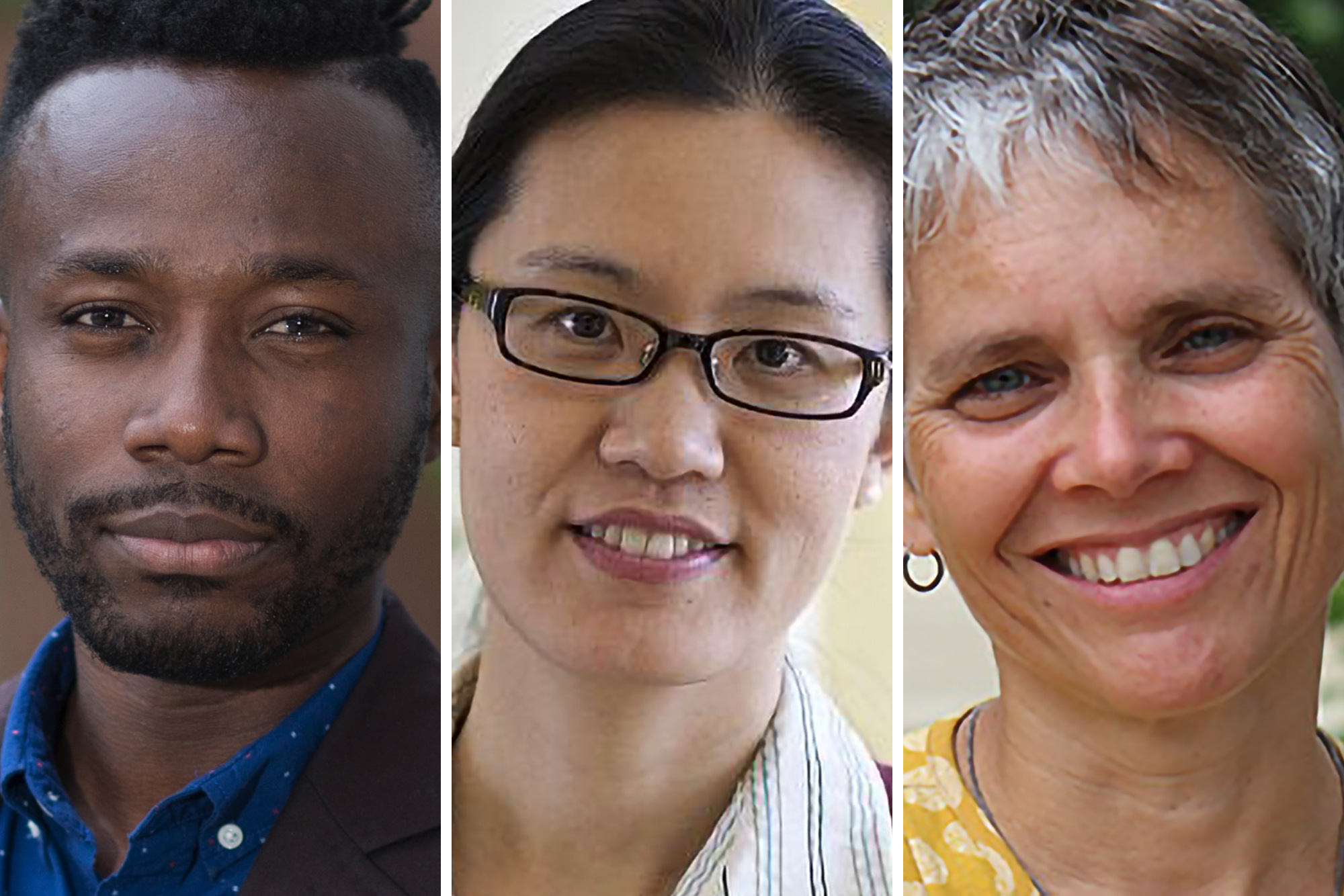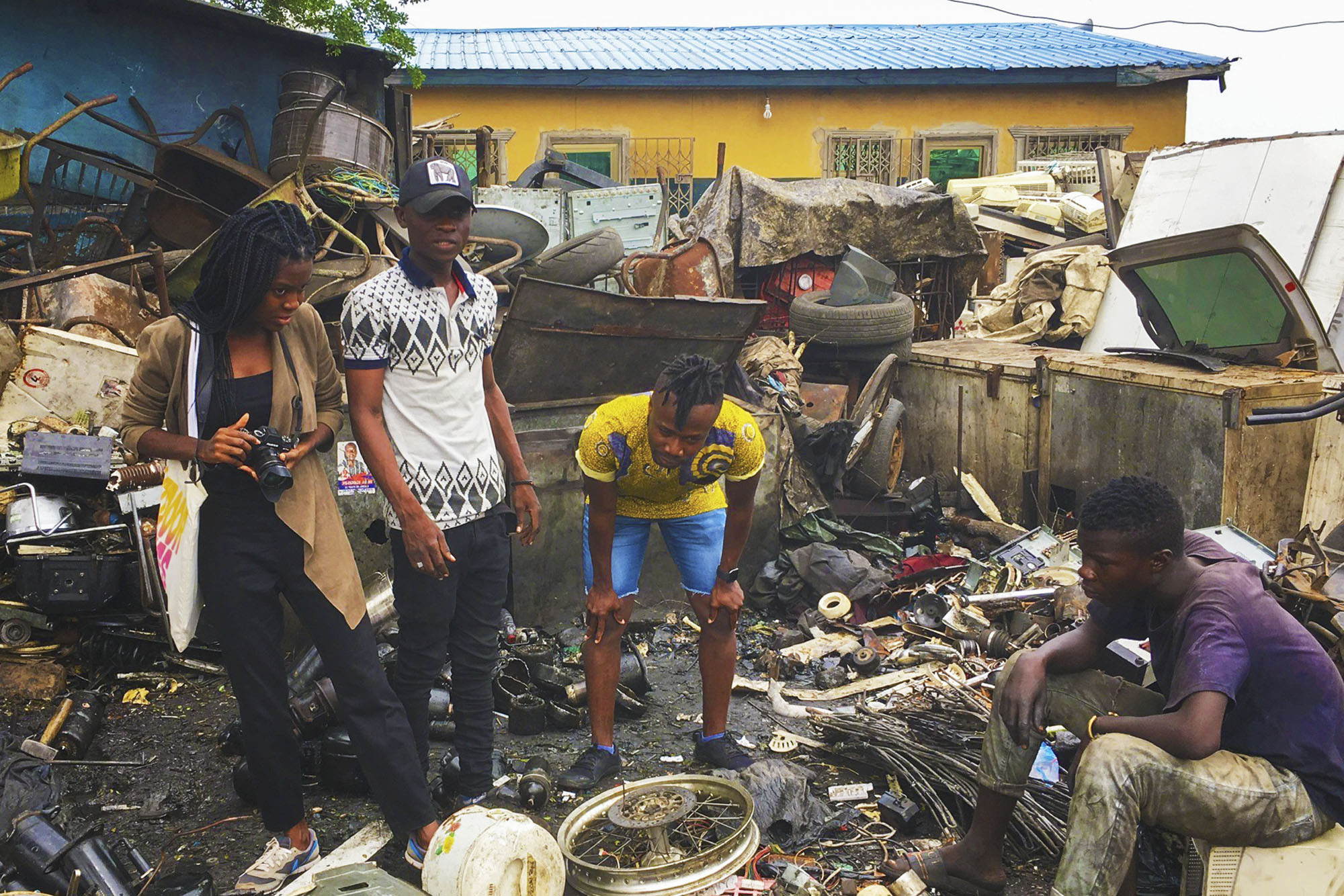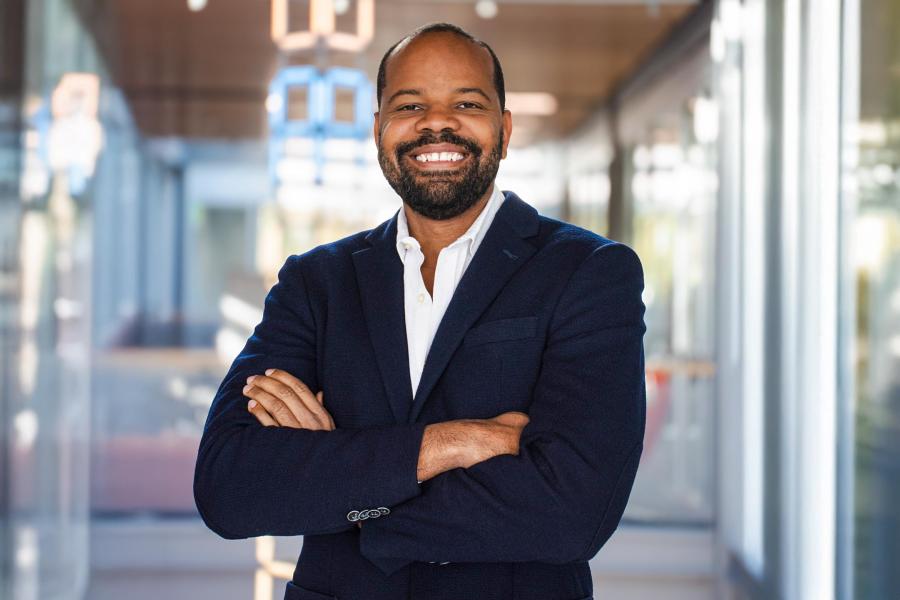A new Global Health Equity professorship program will bolster research led by three University of Virginia professors on topics including the toxicity of electronic waste, the alarming trend of rural hospital closures and the experiences of asylum-seekers arriving in Charlottesville.
All three projects address key challenges to the health and well-being of individuals and communities in the U.S. and around the world and are recipients of the Center for Global Health Equity’s inaugural Richard and Nancy Guerrant Global Health Equity Professorships.
The professors plan to launch their research in early 2022 and will have support for the next three years. The faculty members are from the Carter G. Woodson Institute for African-American and African Studies, the McIntire School of Commerce and the School of Nursing.
“Making resources available to faculty to address global health equity not only generates student opportunities, but also enriches us all – especially those in greatest need,” said Richard Guerrant, founding director of the Center for Global Health Equity, whose generous support with his wife, Nancy Guerrant, made the professorships possible.

From left, Kwame Otu, Natasha Foutz and Kathryn Laughon are recipients of the Center for Global Health Equity’s inaugural Richard and Nancy Guerrant Global Health Equity Professorships. (Contributed photos)
Rebecca Dillingham, the center’s director, said the center’s commitment since 2001 to health for all has never been more important than now, as the COVID-19 pandemic has made visible long-standing challenges to the achievement of health equity.
“It is a wonderful and unique opportunity to recognize and support outstanding faculty members from across Grounds whose research demonstrates commitment to building knowledge and developing strategies to reduce health disparities in the United States and around the globe,” said Dillingham, a professor of medicine.
The three awardees for Center for Global Health Equity Global Health Equity Professorships are:
- Kwame Otu, assistant professor in Carter G. Woodson Institute for African-American and African Studies, for his project, “Scenes of Toxicity.”
- Natasha Foutz, associate professor in the McIntire School of Commerce, for her project, “Impact of Rural Hospital Closure on Health Equity: Insights from Location Big Data.”
- Kathryn Laughon, associate professor in School of Nursing, for her project, “The Border is Here: Experiences of Asylum Seeker’s ‘Last Leg’ Travel and Arrival Home in the United States.”
Kwame Otu: “Scenes of Toxicity”
Q. Why is this project important?
A. This project will look at the lives of e-waste workers, mostly men, on an electronic waste dump in Agbogbloshie – nicknamed “Sodom and Gomorrah” – in Accra, Ghana’s capital. These men incinerate obsolete technology to extract the valuable metals embedded in them. The precious metals include copper, aluminum and coltan, which are upcycled and resold in the global chain of valuable minerals. Having acquired international and local notoriety as the world’s largest e-waste dump, “Sodom and Gomorrah” officially became its popular name.










